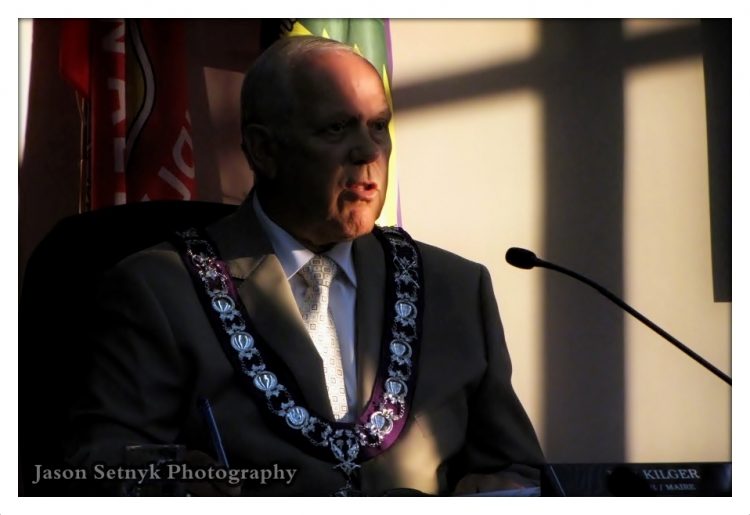No products in the cart.
City of Cornwall receives reports from Closed Meeting Investigator

Cornwall.ca — The City of Cornwall has received the final reports for two closed meeting investigations by Mr. Stephen Fournier, Closed Meeting Investigator.
Under Section 239 of the Municipal Act, residents can request an investigation into whether a municipality has complied with the requirements for holding meetings that are closed to the public. The City of Cornwall appointed Mr. Fournier as the City’s Closed Meeting Investigator by By-law in 2007.
In his summary of the reports, Mr. Fournier notes the investigations were prompted by two separate whistleblower complaints.
“In summary, the matters that were discussed in the closed meetings under investigation relating to both complaints, the grounds cited for doing so and Council’s actions were found to be appropriate under Section 239 of the (Municipal) Act,” Mr. Fournier writes in the summary letter.
At the same time, Mr. Fournier recommended the City incorporate into its closed meeting procedures a slightly higher degree of specificity in its general description of a matter to be considered in a closed meeting, as permitted under Section 239 (2) of the Municipal Act.
City Council will hold a special meeting on Tuesday, May 7th at 5 pm at City Hall (360 Pitt Street) to review Mr. Fournier’s reports.
The reports from Mr. Fournier can be viewed in their entirety on the Council meetings page of the City website. To access the reports, please click here.
For additional information on closed meetings and closed meeting investigations, click here.
Enclosed are the conclusions of Mr. Fournier’s second report:
Summary of Findings, Conclusions and Recommendations
The key findings, conclusions and recommendations with respect to this request for an investigation follow below. In summary, the complainant maintained that while the allegations set out in the whistleblower complaint should be handled in confidence to ensure a fair process; Council did not act in an open and transparent manner while processing the complaint.
At certain points in the process such matters as appointing an investigator, granting the powers of investigation, etc., should have been considered in (a) open session(s) rather than entirely in camera or closed meetings. The complainant also believes the public was entitled to know the position or title of the individual whose conduct was the subject of the whistleblower complaint.
Under Section 239(1) of the Act, members of Council must assess- even when the matter falls under one of exceptions- whether the need for confidentiality should prevail over the requirement to conduct its business in open meetings. In effect, the exceptions or grounds that permit a matter to be considered in a closed session in Section 239(1) are discretionary and not mandatory. Therefore, any council or committee or board thereof, must carefully weigh the right of confidentiality and the public right for open and transparent local governance in any matter that may meet the grounds for a closed meeting.
In this case, the handling of a complaint under the City’s Whistleblower Policy precipitated this particular closed meeting investigation. One of the central principles in any whistleblower complaint-handling policy is the requirement for a confidential and anonymous process. Otherwise the effectiveness and confidence in such a policy in the workplace with respect to the fundamental protections afforded the whistleblower, the witnesses and the accused will be diminished.
It is clear from the records of the closed meetings and the oral evidence that Council considered and provided staff and/or legal counsel direction on various elements of the complaint- handling and investigative process in order to move forward and address the specific details and nature of allegations set out in the whistleblower complaint. As such it is the investigator’s opinion that Council’s actions to preserve the confidentiality of the process was warranted in this case. The matters that were discussed in the closed sessions from March 26, 2012 to March 25, 2013, and the grounds cited for doing so were appropriate under Section 239 of the Act.
In closing, however, the complainant’s position that the public had the right to know or at least receive some form of notice that a whistleblower complaint was under investigation merits consideration. The handling of a whistleblower complaint constitutes one of many human resource/personnel procedures (recruitment, pay equity, salary range classifications, job descriptions, codes of conduct, etc.) that are normally conducted by municipal councils as matters of public policy.
In this case, the records indicate that the procedural requirement under the Act to provide a general description the nature of the matter to be considered in closed session (in addition to citing the legislative grounds under Section 239) was fulfilled through a specific reference to a confidential report/discussion that was often referred to as a Confidential Report- Personnel Matter(s) in the resolutions of the open council meetings to move in camera.
In the opinion of the investigator, the term “personnel matters” it is so broad that it lacks the general degree of specificity contemplated under the procedural requirements of Section 239 of the Act. The following sample resolution serves both as a recommendation and an example of a description of the matter, which provides 10 sufficient detail without breaching the confidentiality rights associated with the matter that precipitated this closed meeting complaint:
THAT the Council of the Corporation of the City of Cornwall move at (time) into a closed meeting as provided for under Subsection 293(2) (b) – personal matters about an identifiable individual, including municipal and local employees. Specifically, to consider a Confidential Report relating to the City’s Whistleblower Policy.
It is recommended that the City incorporate into its closed meeting procedures the degree or level of specificity in its general description of a matter to be considered under Section 239(2) of the Act in a closed meeting as illustrated in the above sample resolution.
Respectfully submitted,
Stephen Fournier,
Closed Meeting Investigator






